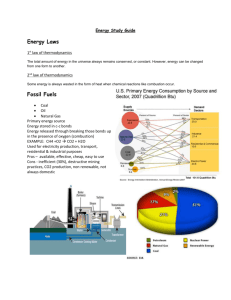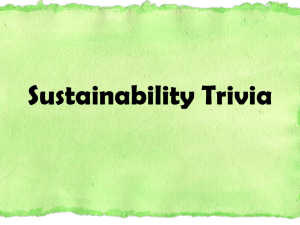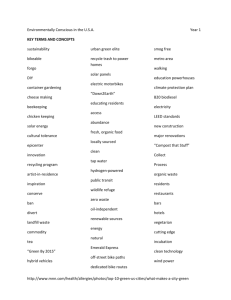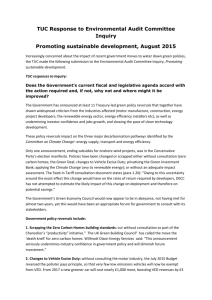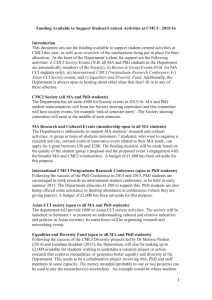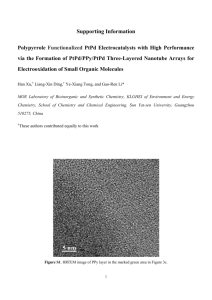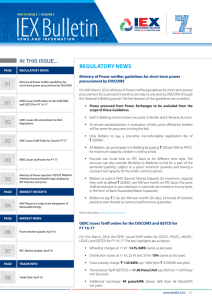Support To The India Solar Capital Market Climate Initiative
advertisement
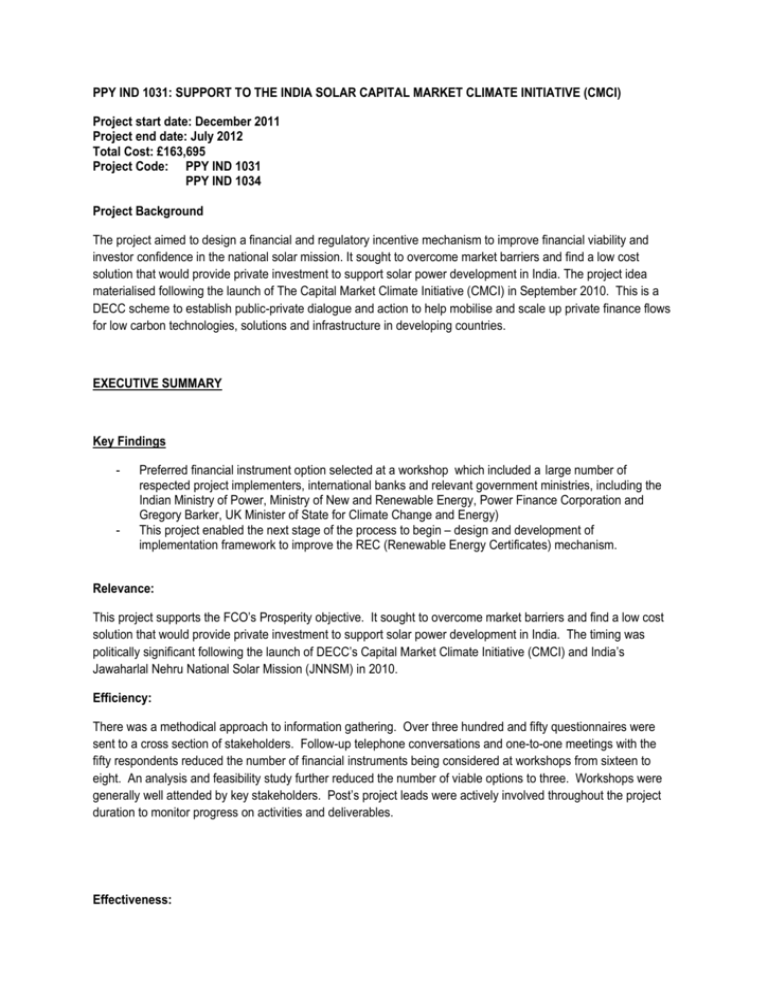
PPY IND 1031: SUPPORT TO THE INDIA SOLAR CAPITAL MARKET CLIMATE INITIATIVE (CMCI) Project start date: December 2011 Project end date: July 2012 Total Cost: £163,695 Project Code: PPY IND 1031 PPY IND 1034 Project Background The project aimed to design a financial and regulatory incentive mechanism to improve financial viability and investor confidence in the national solar mission. It sought to overcome market barriers and find a low cost solution that would provide private investment to support solar power development in India. The project idea materialised following the launch of The Capital Market Climate Initiative (CMCI) in September 2010. This is a DECC scheme to establish public-private dialogue and action to help mobilise and scale up private finance flows for low carbon technologies, solutions and infrastructure in developing countries. EXECUTIVE SUMMARY Key Findings - - Preferred financial instrument option selected at a workshop which included a large number of respected project implementers, international banks and relevant government ministries, including the Indian Ministry of Power, Ministry of New and Renewable Energy, Power Finance Corporation and Gregory Barker, UK Minister of State for Climate Change and Energy) This project enabled the next stage of the process to begin – design and development of implementation framework to improve the REC (Renewable Energy Certificates) mechanism. Relevance: This project supports the FCO’s Prosperity objective. It sought to overcome market barriers and find a low cost solution that would provide private investment to support solar power development in India. The timing was politically significant following the launch of DECC’s Capital Market Climate Initiative (CMCI) and India’s Jawaharlal Nehru National Solar Mission (JNNSM) in 2010. Efficiency: There was a methodical approach to information gathering. Over three hundred and fifty questionnaires were sent to a cross section of stakeholders. Follow-up telephone conversations and one-to-one meetings with the fifty respondents reduced the number of financial instruments being considered at workshops from sixteen to eight. An analysis and feasibility study further reduced the number of viable options to three. Workshops were generally well attended by key stakeholders. Post’s project leads were actively involved throughout the project duration to monitor progress on activities and deliverables. Effectiveness: Three financial instrument options were considered at the final workshop attended by respected project implementers, international banks and relevant government ministries. Following a robust selection process, an improved Renewable Energy Certificate (RECs) mechanism was identified as the preferred option. The Indian Energy Exchange (IEX) is Indian’s first leading electricity exchange. It was able to remain impartial during the consultation process because it represents all stakeholders equally. IEX believes all stakeholders had the opportunity to present opinions on how to best support the JNNSM. General stakeholder consensus is that Renewable Energy Certificates has huge potential to positively transform the solar capital investment market. IEX supports this view. Impact: The project gained Government of India support. Workshops provided a platform for key stakeholders to agree on “one route” to a successful solar energy infrastructure in India. Phase II of the project (also supported by the FCO’s Prosperity Fund) started in August 2012 and has already delivered a detailed design and development of implementation framework to improve the REC mechanism. In February 2013, a detailed concept note identifying the best financial/regulatory option for solar energy development in India formed the basis of a £50m bid for DECC ICF funding. The bid is under consideration and a final decision is likely to be made towards the end of 2013. Lessons Learned: There can be an element of suspicion that comes with trying to implement a UK Government funded project in a foreign country. Stakeholders are likely to be more engaged if they are aware of the UK’s objective and who would benefit most from the project. Project officers should be encouraged to seek the best value for money and given independence to negotiate rates with consultants. Post Programme Teams provide a valuable source of information. Programme Evaluations are likely to be more effective they are given the opportunity to provide feedback on a project, prior to discussions with project stakeholders.



